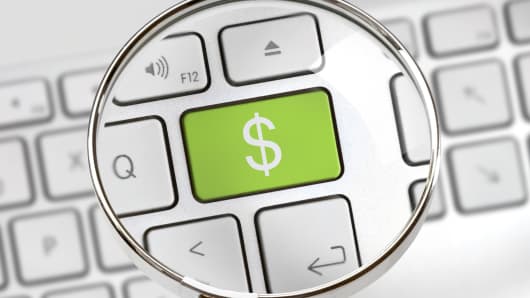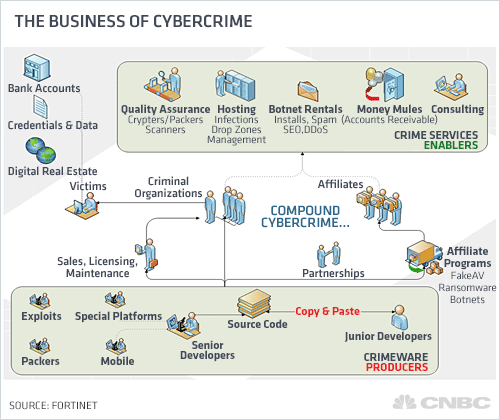More than 138 million American adults have life insurance. Why? Because death is one of the only guarantees in life — that and taxes. And now, perhaps, getting hacked can be added to the list, and that's been a boon to the cyber-insurance industry.
"Any high-value organization has been or will be attacked soon — that is almost certain in today's world," said William Stewart, the leader of Booz Allen Hamilton's Cyber Technologies Center of Excellence.
Apple, Facebook, Twitter, Bank of America, PNC, and even NBC News have all been victims of cybercrime recently. And the list goes on. (Like NBC News, CNBC is a unit of Comcast's NBC Universal unit.)
It's an issue that's keeping C-suite executives up at night. Fear of a cyberattack tops the list of major business risks that CEOs are most concerned about, according to a recent study sponsored by American International Group.
(Read More: Execs Say Cyberattacks a Top Threat: AIG Survey)
That fear appears to be driving business to the insurance industry. Cyber-insurance policies have been around for over a decade but their use has really only spiked in the past few years, and business is expected to grow.
As of June 2012, the Betterley Report, an independent guide to specialty insurance products, estimated that the total insurance premium for cyber-insurance was about $1 billion in the United States. The report's publisher, Richard Betterley, said he anticipates the premium to hit $1.2 billion in this year's report.
Insurance brokerage firm Marsh, whose parent company is Marsh and McLennan, said it has seen a 30 percent increase over the last year when it comes to its cyber business.
"There was a day when IT-related risks seemed to exist only for computer and technology firms," Bob Parisi, Marsh's Network Security and Privacy Practice Leader, told CNBC. "Now, the reality has set in that any company that handles, collects, or stores information; or any company that uses a computer network in its operations has this risk."






